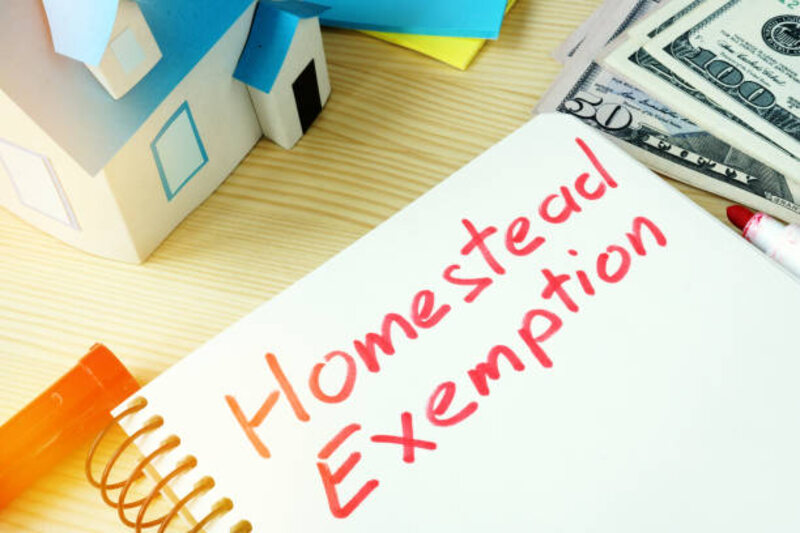Understanding Homestead Exemptions: A Comprehensive Guide
Dec 20, 2023 By Susan Kelly
Owning a home is a significant milestone for many individuals and families. Beyond the joys of homeownership, there are also various financial aspects to consider, one of which is the Homestead Exemption. This valuable benefit can make a substantial difference in your property taxes and overall financial well-being. In this comprehensive guide, we will delve into the intricacies of Homestead Exemptions, exploring what they are, how they work, and why they matter.
What is a Homestead Exemption?
A Homestead Exemption is a legal provision designed to offer homeowners protection by reducing the taxable value of their primary residence. This means that a portion of the home's value is exempt from property taxes, providing homeowners with a financial benefit. Homestead Exemptions are established by state laws and vary widely across different regions.
Qualifying for a Homestead Exemption
To qualify for a Homestead Exemption, homeowners typically need to meet specific criteria. Common requirements include:
- Primary Residence: The property must be your primary residence, meaning you live in it as your main home.
- Ownership: You must be the legal owner of the property, and it should be titled in your name.
- Application: In many jurisdictions, homeowners need to apply for the Homestead Exemption. This is not automatic in all cases, so it's crucial to be aware of the application process and deadlines.
- Occupancy: Some areas require homeowners to occupy the property by a certain date to be eligible for the exemption.
Financial Benefits of Homestead Exemptions:
The financial advantages of a Homestead Exemption are numerous and can significantly impact a homeowner's budget. By reducing the taxable value of your property, you lower your property tax liability. This can result in substantial savings, especially for those with more modest incomes.
Protection Against Creditor Claims:
Beyond the financial benefits, Homestead Exemptions often provide protection against creditor claims. In the unfortunate event of bankruptcy or certain legal judgments, the equity in your primary residence may be shielded up to a certain amount, depending on your jurisdiction's laws.
Principle of Creditor Protection:
The principle behind creditor protection for Homestead Exemptions is to ensure that individuals and families are not entirely stripped of their assets during financial hardships. This can provide a sense of security and stability, knowing that your primary residence is protected from being seized by creditors.
How Homestead Exemptions Protect Homeowners from Creditors?
Homestead Exemptions vary by state and dictate the level of protection granted to home equity. Certain regions impose no limits on the exemption value for your main residence, safeguarding it from creditor claims. In other areas, the exemption amount may be subject to a cap based on factors like marital status and age.
Limits and Exceptions of Creditor Protection:
It is important to understand that Homestead Exemptions have certain limitations and exceptions. For instance, they generally do not provide protection against federal tax liens, mortgages or foreclosures, and certain types of debt such as child support or alimony. If you decide to sell your primary residence, the exemption may no longer be applicable.
Case Study: Homestead Exemption in Bankruptcy Cases
Homestead Exemptions can be particularly advantageous in bankruptcy cases, where individuals face financial struggles and potential loss of assets. In some jurisdictions, homeowners can use the Homestead Exemption to protect a portion of their primary residence's equity from being liquidated during bankruptcy proceedings.
State Variations in Creditor Protection:
It is essential to note that the degree of creditor protection offered by Homestead Exemptions varies significantly from state to state. Some states have generous exemptions, while others offer little or no protection at all. It's crucial to understand your jurisdiction's laws and consult with a legal professional for guidance on how to best protect your assets.
Understanding Exemption Amounts:

The amount of the Homestead Exemption varies widely from state to state. Some states offer a fixed dollar amount, while others provide a percentage-based exemption. It's essential to be aware of the specific details in your local area to maximize the benefits available to you.
Fixed Dollar Amount Exemptions:
In states that offer a fixed dollar amount exemption, the value is set by law and typically remains the same year after year. For example, if your state has a $50,000 Homestead Exemption, then only the first $50,000 of your home's assessed value will be subject to property taxes.
Percentage-Based Exemptions:
In comparison, states that offer a percentage-based exemption base the amount on a percentage of the home's assessed value. For instance, if your state has a 50% Homestead Exemption and your home is valued at $200,000, then you would only pay property taxes on $100,000.
Exemption Amounts Based on Homeowner's Age or Disability:
Some states offer additional Homestead Exemption benefits for homeowners based on age or disability. This can provide further financial relief and protection for those who may need it most.
Exemptions Adjusted for Cost of Living:
In some areas, the Homestead Exemption amount may be adjusted annually to reflect changes in the cost of living. This ensures that homeowners continue to receive a fair and reasonable exemption as inflation and expenses increase.
Exemption Amounts and Marital Status:
Homestead Exemptions can vary in different regions based on the homeowner's marital status. For instance, married couples may qualify for a higher exemption amount compared to single individuals or heads of households.
How Exemption Amounts Impact Property Taxes?
The Homestead Exemption amount can greatly influence property taxes, particularly for homeowners with modest incomes. By decreasing the taxable value of your home, you have the potential to save hundreds or even thousands of dollars in property taxes annually. This reduction can be a significant financial benefit, allowing homeowners to allocate those funds towards other important expenses.
Understanding Your Local Homestead Exemption Amount and Eligibility:
Proper research and comprehension of your local Homestead Exemption laws are vital. This includes understanding the specific exemption amount and eligibility criteria. It's important to note that certain states impose strict deadlines and application procedures for claiming the exemption. Being aware of these details is crucial in order to fully leverage the benefits it offers.
Applying for a Homestead Exemption:

To reap the rewards of a Homestead Exemption, homeowners must proactively apply for the benefit. This typically involves submitting an application to the local assessor's office. It's crucial to be mindful of application deadlines and provide all required documentation to ensure a smooth process.
Conclusion:
Understanding Homestead Exemptions is paramount for homeowners looking to optimize their financial situation. Beyond the immediate savings on property taxes, these exemptions offer a layer of protection and financial security. To make the most of this valuable benefit, homeowners should familiarize themselves with the specific requirements and application procedures in their jurisdiction. As you embark on your homeownership journey, consider the potential advantages of a Homestead Exemption—it might be a key element in securing both your home and financial future.





